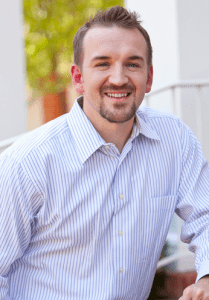 The Cost of Loving God and Loving Others (The Jesus Creed)
The Cost of Loving God and Loving Others (The Jesus Creed)
A Discussion with Scot McKnight Below is an online interview/dialogue on spiritual growth I have been having with Dr. Scot McKnight, a New Testament Professor at Northern Seminary (http://www.seminary.edu/) and the author of Christianity Today’s Book of the Year, The Jesus Creed. This dialectic is offered both here and on Scot’s blog on Patheos.com.
Brad: Obedience costs us something. As our church reads your book, The Jesus Creed, several people have been struck with the cost that full commitment requires. Jesus asks his disciples to love God completely—with a mind-heart-soul-strength devotion—and to love others as they love themselves. It follows that if one makes loving God and loving others a priority in one’s life, other things will need to be reduced in priority. This is true in all of life. For example, if I decide to spend more of my energy at work, in my studies, or with my children, then something will need to give. I might need to play less golf or reduce my time just hanging out with my friends. Making one thing a high priority always costs me something. Scot, you offer the biblical examples of Joseph, the earthy father of Jesus, and Mary, Jesus’ mother. In obediently accepting Mary as his wife and adopting Jesus as his son, Joseph loses his reputation as a “righteous” Jewish man. And Mary, too, becomes seen as improper and imperfect. For both, raising Jesus will create great enemies, great difficulties, and great pains. Following God comes at a high cost for them. Scot, what are some of the costs for us of following the Jesus Creed?
Scot: My first answer is the only answer: everything. For love – love of God, love of others – to be called real love means we need to surrender our heart, our all, to the very core of our being. Partial love diminishes love to where it really isn’t even love. So, let’s get this straight: God doesn’t just want something from us; God wants us.
There are, however, “symptoms” of the real cost of self-surrender to God. Those symptoms are sometimes shifts and other times revolutions. We are called now in our surrender to God of our entire person to let that new life reshape everything else: how much time we give to work, how we spend our money, how conduct our relationships with family, friends, neighbors and work mates, how we drive, how eat, how we… these are the symptoms of the real cost. The cost is self the symptoms are manifestations of that cost.
These are hard words, but God is not some tyrant: we are on a journey toward becoming people who love God and love others, and we will never be perfectly loving in this life. So we journey together in this life of surrender to God.
Brad: Before dying for his faith in WWII,Dietrich Bonheoffer writes a troubling (and refining) passage about priorities in his book, The Cost of Discipleship:
“The call of Jesus teaches us that our relation to the world has been built on an illusion. All the time we thought we had enjoyed a direct relation with men and things. This is what had hindered us from faith and obedience. Now we learn that in the most intimate relationships of life, in our kinship with father and mother, brothers and sisters, in married love, and in our duty to the community, direct relationships are impossible. Since the coming of Christ, his followers have no more immediate realities of their own, not in their family relationships nor in the ties with their nation nor in the relationships formed in the process of living. Between father and son, husband and wife, the individual and the nation, stands Christ the Mediator, whether they are able to recognize him or not. We cannot establish direct contact outside ourselves except through him, through his word, and through our following of him. To think otherwise is to deceive ourselves.”
Scot, this is clearly a counter-cultural view-point in the world today. From your perspective, how does prioritizing loving God and loving others impact our other earthly activities and relationships?
Scot: Wow, that’s quite a statement by Bonhoeffer. I think he’s saying the only way we can love others is through the love that is created in Christ. Love is not self-generated but Christ-generated.
I believe recitation of the Jesus Creed reshapes our minds and our hearts to see that loving God and loving others are what God most wants from us. The “impact” will be found in the corners of life. We don’t wake up, clean up, and proceed out the door and say “World, here comes my best foot forward in love.” Rather, we find the impact when, in the getting ready for the day one of our family members needs us or we become aware of that need; it comes when in getting into the car someone seems to be having trouble getting some bags into their trunk; it comes when in taking a walk someone happens to have invaded our quiet space and wants to talk; it comes when we have scheduled some time for reading but our spouse calls and needs our attention; it comes when instead of gearing up for the day with more busy-ness we pause for prayer and Bible reading and recollection.
To love God, then, is to let the ordinary moments of life be transfused with the echo of the Jesus Creed.











